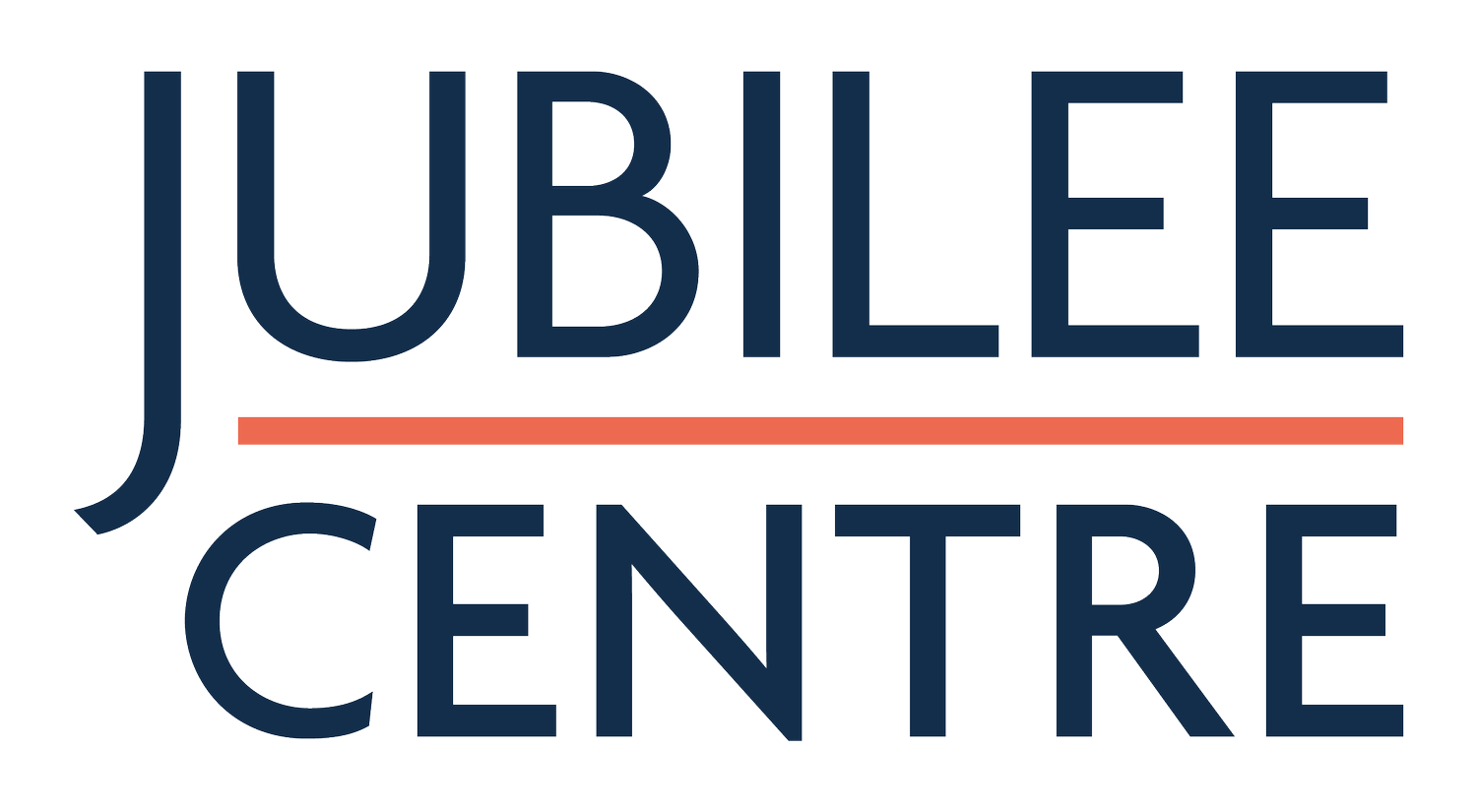
The Idolatry of Artificial Intelligence: Why AI Developers are talking about Old Testament Idols
Silicon Valley’s growing talk of “Moloch” reveals a deeper anxiety: artificial intelligence is becoming an impersonal force demanding sacrifice without consent. Unlike past technologies, AI appears to act with a life of its own, mirroring human desires while lacking moral agency. The danger is not demonic possession, but misplaced trust, treating a powerful tool as a relational substitute.

Christian View on Environmental Responsibility
The writer, Hadden Turner, strongly believes one of the greatest needs for the modern world is for evangelical Christians to rediscover their biblical environmental responsibilities and thus retake the helm of environmental action as stewards of God’s very good earth. To this end, we need an articulation of a set of guiding environmental principles that are biblically and ecologically based.

Hopeful Witness in an Age of Pessimism
In an age of doomscrolling and despair, we need a deeper story. History is not only a graveyard of disasters; it is a reservoir of hope. From Equiano to Douglass, Black Christian reformers bore prophetic witness against injustice and called Britain to live up to its own faith. Their legacy reminds us that courage can still change the world.

News Addiction: Why I Have Stopped Reading the News
Like many people, I am addicted to the news. But stepping away has not made me disengaged; it has made me more attentive. Constant news feeds promise awareness yet produce passivity, overwhelming the mind and dulling our moral senses. Saturation breeds anxiety, manipulation, and exhaustion, leaving us informed, but less capable of truly engaging with the world.

Our Daily Bread
Gail’s Bakery, once known for generosity and craft, now reflects the pressures of rapid scaling, workers labour under strict surveillance, harsh practices, and efficiency-driven demands. In contrast, Scripture offers a different vision through Boaz, who treats the vulnerable with dignity and abundance. His example challenges today’s economy, urging businesses and believers to prioritise care, community, and human flourishing over profit alone.

Neighbours in Arms
Extremist violence in Africa continues to rise, driven less by ideology than by governance failures, exclusion, and poverty. This blog analyses the roots of terrorism, critiques Western interventions, and highlights community-based peacebuilding as a more sustainable path. Drawing on biblical principles of justice and compassion, it calls for partnerships rooted in trust, equality, and local ownership.

Living Virtuously with AI Chatbots
If you’re concerned about the uncritical rise of AI, Jeremy Peckham’s Cambridge Paper: “Living Virtuously with AI Chatbots” is a essential reading. He explores how AI challenges our virtue, relationality, and humanity, warning against emotional dependence on digital companions. Peckham urges Christians to cultivate good habits, protect relationships, and ensure technology serves us, not replaces us.

When Will Europe Ever Learn to Connect the Dots?
Europe’s leaders still fail to connect the dots between their foreign policies and the migration crises they decry. From Libya to Iran, Turkey to Syria, short-term deals and profit-driven diplomacy deepen the very causes of displacement. Until Europe adopts a relational approach that recognises human dignity and interdependence, its policies will keep fuelling the chaos they claim to solve.

Generational Discontent
Gen Z faces rising loneliness, fewer friendships, and a shrinking zest for life. Remote work, while comfortable, often intensifies disconnection, erodes discipline, and detaches us from embodied community. Digital work promises flexibility but risks leaving young people unfulfilled. The Church can offer an alternative: rhythms of rest, embodied worship, and real human presence that nurture meaning and belonging in a disconnected world.

Biblical Border Policy
The Bible calls us to love the foreigner, not as a vague ideal, but with concrete action. Ancient Israel’s laws treated migrants as equal under the law, safeguarded their welfare, and invited them into national life. These principles still challenge us today: to build border policies rooted in justice, compassion, and the dignity of every person.

The New Hypocrisy
In a culture quick to expose religious hypocrisy, we must also reckon with the double standards in media and popular morality. Rev Dr Ian Stackhouse challenges the seductive veneer of progress and freedom, exposing a new, secular hypocrisy, one that punishes missteps while celebrating the very behaviours it condemns. What happens when a society forgets how to blush?

Douglas Murray’s War on Terror: Neo-cons and the Israel-Gaza Conflict
Douglas Murray’s refusal to acknowledge the grotesque scale of suffering in Gaza undermines his otherwise sharp analysis. His support for Israel veers into moral complicity when it ignores the disproportionate force used. True solidarity, as Rabbi Jonathan Sacks reminded us, demands self-criticism, not blind allegiance. War may have its time—but so does justice, restraint, and responsibility.

Christian Nationalism: In God we trust?
Christian Nationalism emphasises a national, Christian identity above all others, claiming Christianity as the defining feature of the nation. It places trust in political power over God. Though not uniquely American, its most visible expression is in the U.S., where rhetoric around Christianity and national identity has gained traction among leaders and citizens alike.

Adolescence Is Thoughtful Television, Not Thoughtful Policy
Adolescence is compelling fiction, not sound policy. While it highlights real concerns about male alienation and online radicalisation, its narrative lacks the nuance needed to shape law. The Church, uniquely equipped with a vision of godly masculinity and relational depth, must step in—not with sweeping regulations, but with purpose, discipleship, and a hope strong enough to transform lives.

Addressing Abuse within Evangelical Churches and Organisations
At the start of 2020, I attended Gateway Church under Pastor Robert Morris, unaware of his abusive past. His recent conviction leaves us questioning how leaders like him escape accountability. Many churches face similar scandals, highlighting the urgent need for reform, transparency, and justice in Christian leadership structures.

The Alcohol Problem
Alcohol is deeply embedded in society, fueling business deals and social interactions. However, its harms are undeniable—contributing to violent crime, domestic abuse, and rising deaths. The Bible permits alcohol but warns against drunkenness, advocating temperance. Policies should encourage moderation by promoting public awareness, and enforcing existing laws to curb excessive drinking in social spaces.

Babel: Putting the ‘Artificial’ in Artificial Intelligence
Artificial intelligence is a powerful gift of technology. It is a tool which helps us to solve some of the most complex technical challenges facing people today, from cancer screening to famine prediction. But the Bible also illuminates the ruts and potholes ahead of us in the road towards its good use. We should remember that artificial intelligence will make us more powerful, but never more moral, and that the deception embedded in its name can tempt us to shift responsibility, and neglect our love of others. We must always remember the ‘artificial’ in artificial intelligence.

Money Matters: A Foreword
The financial world is shifting rapidly, but as Christians, we are called to steward our resources with wisdom. In Money Matters, Dr Paul Mills provides a clear roadmap to financial health, rooted in Scripture. By embracing biblical principles, we can break free from a debt-driven culture and build a stable financial future.

Book Review: The Martyr and the Red Kimono by Naoko Abe
Maximilian Kolbe’s sacrifice at Auschwitz is well-known, but Naoko Abe’s book reveals his lesser-known years as a missionary in Japan. Through the lives of Tomei Ozaki, a Nagasaki survivor, and Masatoshi Asari, a peace-driven botanist, she uncovers Kolbe’s lasting influence, weaving history, faith, and reconciliation into a compelling narrative.

Fact-checking: Biblical or Biased?
Meta’s shift to Community Notes over independent fact-checkers is a politically performative but positive step toward decentralising power. Rooted in a biblical principle of shared responsibility, this system encourages accountability across perspectives. However, challenges remain, including its slow response to misinformation and limited scope. Ultimately, it's a ‘least worst’ option in a fragmented world where trust in institutions is eroding.

